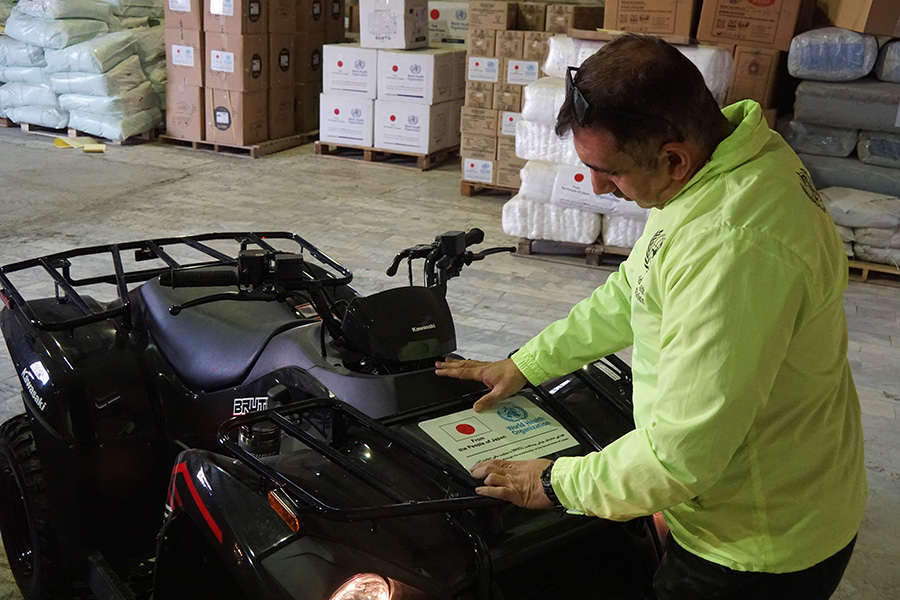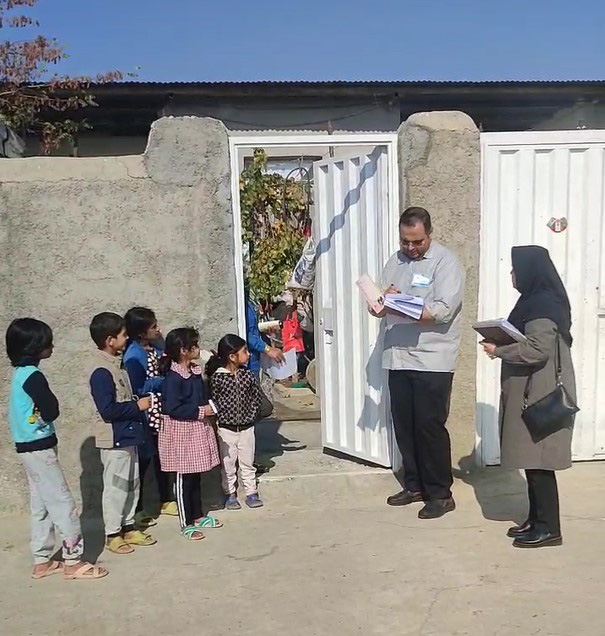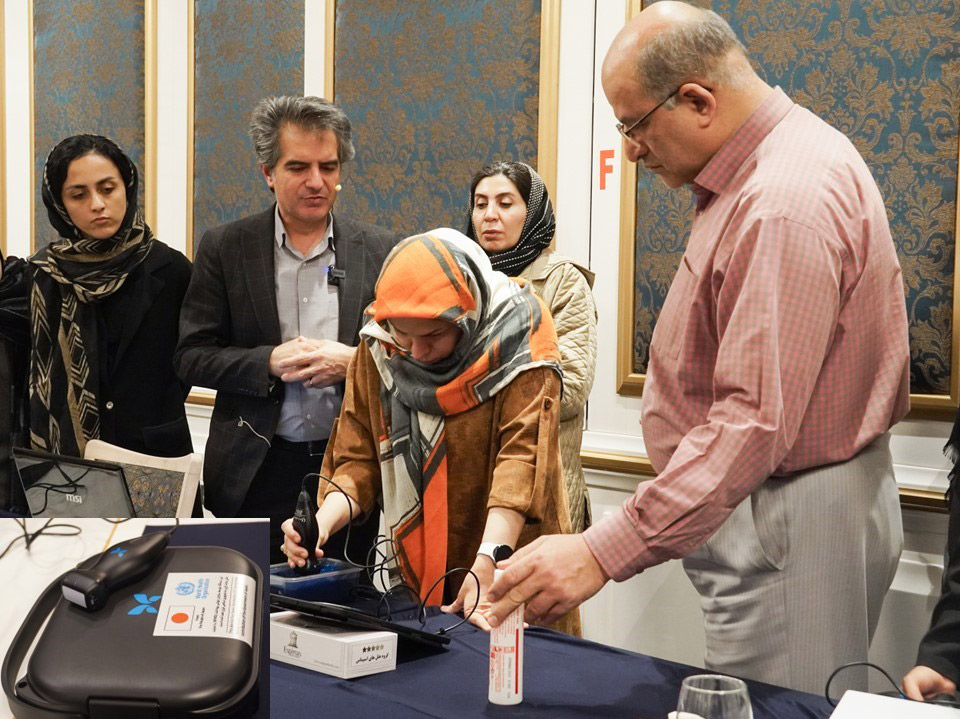 5 February 2024, Tehran, Islamic Republic of Iran – A major project to advance universal health coverage has been completed by the WHO Country Office in the Islamic Republic of Iran. The project’s focus was to provide critical public health and humanitarian assistance to Afghan refugees, host communities and vulnerable populations across the country. Funded by the Government of Japan, the initiative was executed in close partnership with the Iranian Ministry of Health and Medical Education.
5 February 2024, Tehran, Islamic Republic of Iran – A major project to advance universal health coverage has been completed by the WHO Country Office in the Islamic Republic of Iran. The project’s focus was to provide critical public health and humanitarian assistance to Afghan refugees, host communities and vulnerable populations across the country. Funded by the Government of Japan, the initiative was executed in close partnership with the Iranian Ministry of Health and Medical Education.
A main aim of the project was to fortify the Iranian health system’s readiness to detect suspected cases and minimize the risk of epidemic-prone diseases due to cross-border movements and within vulnerable communities. Working with the Ministry, WHO provided essential supplies and rapid test kits to chiefly target the country’s eastern provinces, which are major hubs of cross-border movement and home to refugee communities.

Key efforts included the supply of enough cholera culture materials to analyse 6800 specimens; 30 000 rapid diagnostic test kits each for hepatitis B and hepatitis C; and 2712 molecular diagnostic tests for hepatitis C. These supplies have strengthened the diagnostic capabilities within the health system.
The Strengthening Universal Health Coverage to Amplify Public Health and Humanitarian Assistance to Refugees and Vulnerable Populations in the Islamic Republic of Iran project also facilitated a survey. This examined measles vaccine coverage among Afghan immigrant and refugee populations in the catchment areas of 5 universities of medical sciences. The study findings helped to identify immunization needs, challenges and successes, leading to recommendations for enhancing vaccine coverage among vulnerable populations.
In Sistan and Baluchestan province specifically, and guided by WHO’s objectives, the initiative focused on enhancing access to quality health services at the 3 levels of primary health care (primary, secondary and tertiary) particularly for maternal and neonatal care.
Key successes in Sistan and Baluchestan include the project’s introduction of a comprehensive telemedicine infrastructure in Saravan and Sarbaz districts, covering a total population of 336 384, with a special focus on maternal and neonatal health. This involved procuring quadbikes and mobile clinics, and setting up telemedicine services in primary health care centres and hospitals. Also, 16 delivery facilities across the province were equipped with childbirth equipment and supplies for 4000 safe and free-of-charge deliveries.
These efforts will help ensure timely and quality maternal and neonatal health care in hard-to-reach areas and in the hospitals of underprivileged districts.
 The telemedicine set-up enables health systems to share health data remotely and lets health providers and distant doctors consult each other using various digital medical devices appropriate for telemedicine. Project implementation adhered to WHO standard operating procedures to ensure the quality, standard and compliance of the acquired medical devices.
The telemedicine set-up enables health systems to share health data remotely and lets health providers and distant doctors consult each other using various digital medical devices appropriate for telemedicine. Project implementation adhered to WHO standard operating procedures to ensure the quality, standard and compliance of the acquired medical devices.
The project also provided 1515 essential assistive technologies and aids for daily living. These will cover the needs of more than 1300 people with severe disabilities and socio-economic vulnerabilities.
“The Government of Japan has supported the achievement of UHC in all areas of health cooperation, such as improving maternal and child health, which is still a major challenge in developing countries, and measures to control the spread of infectious diseases. Japan has also cooperated with Iran for many years regarding assistance to Afghan refugees in Iran. We hope that this project will contribute to improving health of refugees in Iran and host communities,” said H.E. Tamaki Tsukada, the Ambassador of Japan to the Islamic Republic of Iran.
Reflecting on the Government of Japan’s continued support to the Iranian people, Dr Syed Jaffar Hussain, WHO Representative and Head of Mission to the Islamic Republic of Iran, said: “This support enabled WHO to equip the Iranian health system with essential life-saving equipment and supplies, ranging from cutting-edge imaging and diagnostic technologies to our joint crucial emergency responses.”
“The WHO Country Office in the Islamic Republic of Iran extends its appreciation to all stakeholders, emphasizing the collective impact achieved through collaborative efforts in advancing public health and humanitarian assistance,” Dr Hussain added.


